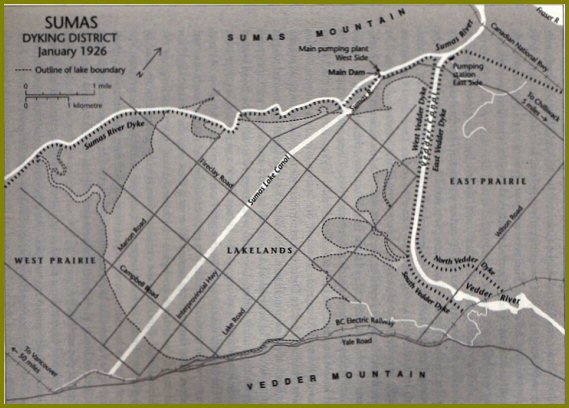Quote:
Originally Posted by misher

I've noticed that many major centres with expensive real estate will begin building on the water. An example is Hong Kong. 
I notice that this has happened in Downtown somewhat but honestly not as much as it could and it seems like recently it has stopped.
Is there a reason we aren't pursing land reclamation more?
To be honest I always thought it would be better to just use old cruise ships to solve our homeless crisis  |
Large-scale reclamation in Vancouver means removing the banks, which would decimate migratory bird populations, so it's a big no-no. The Roberts Banks Terminal expansions are controversial enough.
Also, another thing people didn't mention:
 https://en.wikipedia.org/wiki/Sumas_Lake
https://en.wikipedia.org/wiki/Sumas_Lake
"umas Lake (Halq’eméyle: Semá:th Lake, Nooksack: Semáts Xácho7, (Level Place Lake).,[1]) was a shallow freshwater lake surrounded by extensive wetlands. The traditional territory of the Sumas First Nation, a band of the Sto:lo Nation,[2] it was located between Sumas and Vedder Mountains, midway between the present-day cities of Chilliwack and Abbotsford, British Columbia. The lake supported sturgeon, trout, salmon, grizzly bears and geese. Its wetland habitat was a destination for migrating birds and a breeding ground for both fish and waterfowl. Flocks of white-fronted goose as well as whistling swan and Hutchins geese also used the lake. Its partially sandy banks also provided for sturgeon spawning grounds. The lake supplied food to the Sumas Band, and their life ways were intimately connected to it.[3] In the late 1800s, the lake drew the attention of various naturalists within the growing European populations engaged in the work of cataloging the flora and fauna of the New World.
Having been sold off to non-Indigenous settlers in the 1930s for $60- $120 an acre, the former lake bed[3] has now been transformed into agricultural, residential and commercial zones. It lay between Sumas Mountain and its American counterpart, Sumas Mountain, Washington, part of the foothills of the Cascade Mountains. The lake extended into Whatcom County, Washington, necessitating a railway trestle of the British Columbia Electric Railway across it from Huntingdon to the foot of Vedder Mountain, which remains today as a dyke. "



